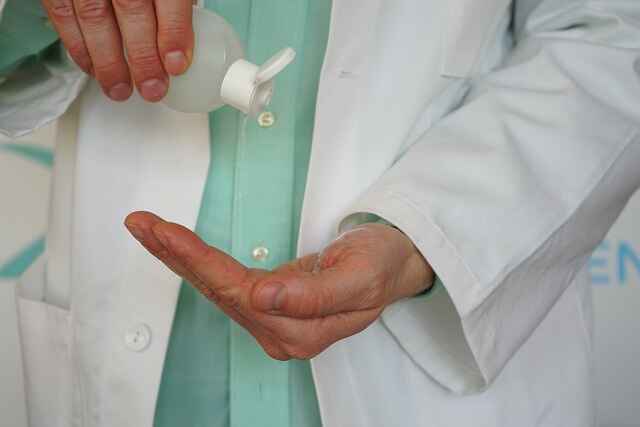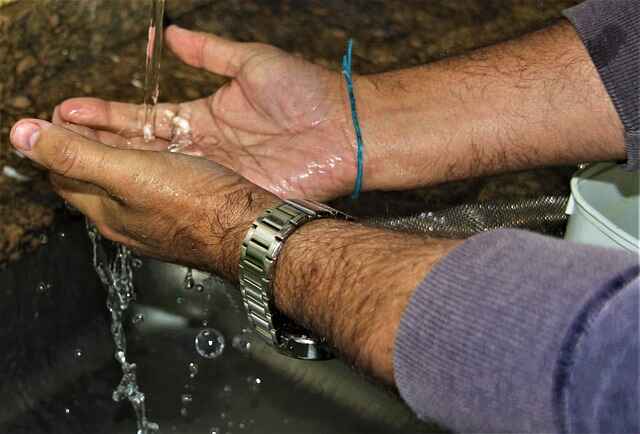Genital Warts
Genital warts are a kind of sexually transmitted infection (STI) that result in the formation and development of warts (small bumps or growths) inside and on your genitals and rectum. The HPV in genital warts could be very contagious and may be transmitted through skin-to-skin touch, normally in the course of oral, anal, or genital intercourse with an infected companion. Genital warts are also called Condyloma.

Causes
Causes of HPV include
- The low-risk types 6 and 11 of HPV are the causative agents of genital warts in 90 percent of the cases.
- Only a few of the 30 to 40 HPV strains are capable of infecting an individual with this STI.
Risk Factors
Young sexually active people, mostly in their teens, have the risk of getting Genital warts.
Some of the other risk factors include:
- Skin-to-skin contact with a person contaminated with HPV
- Having more than 1 sexual partner
- Unprotected intercourse (without condoms)
- Early age sex
- Having prior STIs
Also Read: All About Genital Herpes: Symptoms, Causes, Prevention, Facts
Symptoms
The signs and symptoms of Genital warts include:
- Small, flesh-colored, brown or pink swellings in your genital area
- A cauliflower-like shape caused by several warts close together
- Itching or discomfort in your genital area
- Bleeding with intercourse
Below are some areas of the body where genital warts grow and develop:
In Females
- The vulva
- Walls of the vagina
- The area between the anus and external genitals
- The anal canal
- The cervix
In Males
- On the tip or shaft of the penis
- The anus
- The scrotum
Other areas where the risk of wart development exists are the mouth and throat, in case of oral sexual contact with an infected person.
Diagnosed & Treatment
Diagnosis
Genital warts are recognized and diagnosed simply by their appearance. However, in some cases, a biopsy might be needed for the diagnosis.
There are 2 tests that can be taken to see if you’ve got this STI. (Source)
PAP Test
It is necessary for females to take pelvic exams and Pap tests on a regular basis. This helps in detecting any changes in your vagina and cervix, as a result of genital warts or early signs of cervical cancer.
HPV Test
Out of all the types of genital HPV, only a few are related to cervical cancer. To verify its presence in the body of an individual, a sample of cervical cells can be tested to check for any HPV symptoms
Treatment
Genital warts can be treated both by medication and surgery, however, the virus itself is incurable.
Medication
Following genital warts treatments can be applied directly to the skin. However, avoid treating warts with over-the-counter wart removers and using them in the genital areas.
- Sinecatechins (Veregen)
- Trichloroacetic acid
- AcidImiquimod (Aldara, Zyclara)
- Podophyllin & podofilox (Condylox)
Surgery
If your warts grow large, aren’t treated with medications, or you’re pregnant, the following surgical options may be implemented:
- Freezing with liquid nitrogen (cryotherapy)
- Electrocautery
- Laser treatments
- Surgical excision
Facts
- The human papillomavirus (HPV) is the most common STI in the US. Approximately 20 million people are inflamed with HPV, and about 6 million get inflamed per annum.
- There are more than a hundred known types of HPV, out of which more than forty are capable of being transmitted via sexual contact.
- In rare instances, pregnant ladies with HPV can transfer the virus to their babies in the course of delivery. It may result in the formation of warts within the baby’s throat known as recurrent respiratory papillomatosis or RRP.
- Latex condoms can also decrease your risk of having or spreading HPV if you use them the correct way.
Prevention
People who are young and sexually active have a higher risk of getting this STI. However following measures can be taken to prevent Genital warts:
- Use protection whilst having sexual intercourse. Make sure you use condoms the best way to prevent all types of STIs. Whether it’s vaginal, anal, or oral sex, make sure you have your condom on the penis.
- Get vaccinated. The HPV vaccine is efficient against certain types of HPV that cause genital warts and cervical cancer.
- Get yourself tested on a regular basis. Share and discuss the test reports with your sexual companion, to avoid any risks.
- Avoid having more than one sexual companion, the greater the number of companions, the higher risk of getting STDs.
Also Read: All About Chlamydia: Causes, Symptoms, Prevention, Facts





